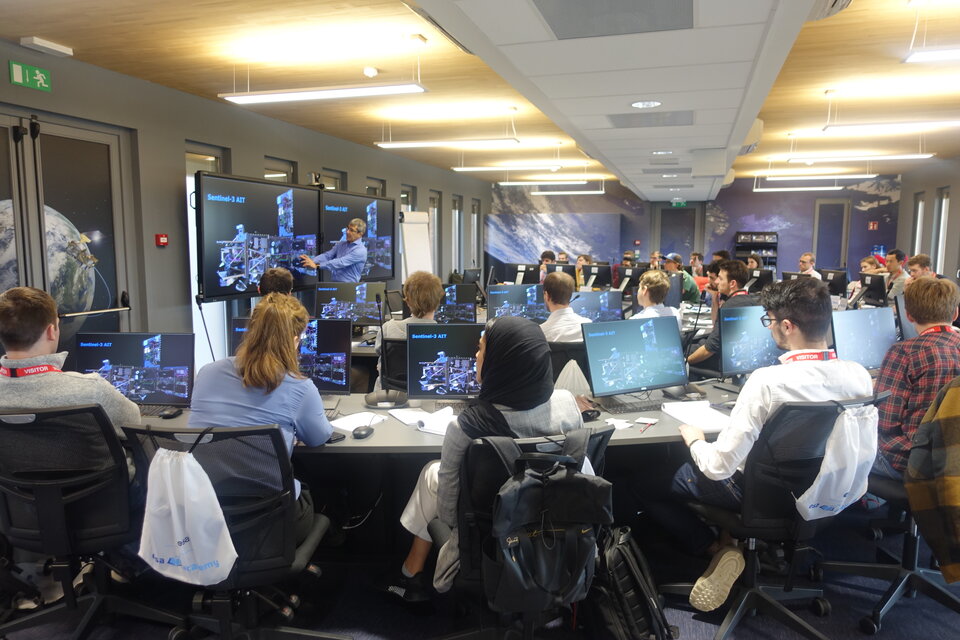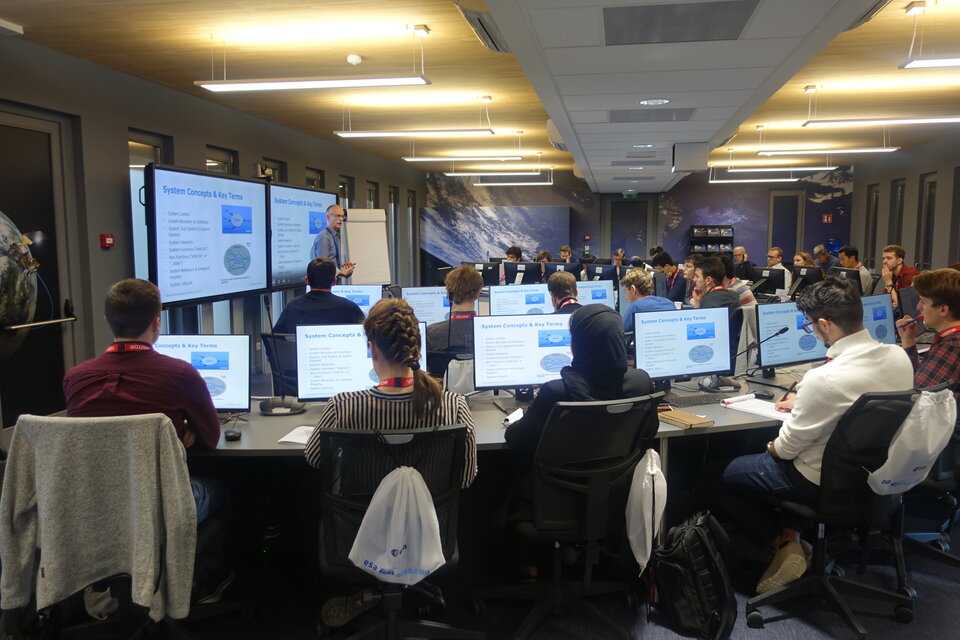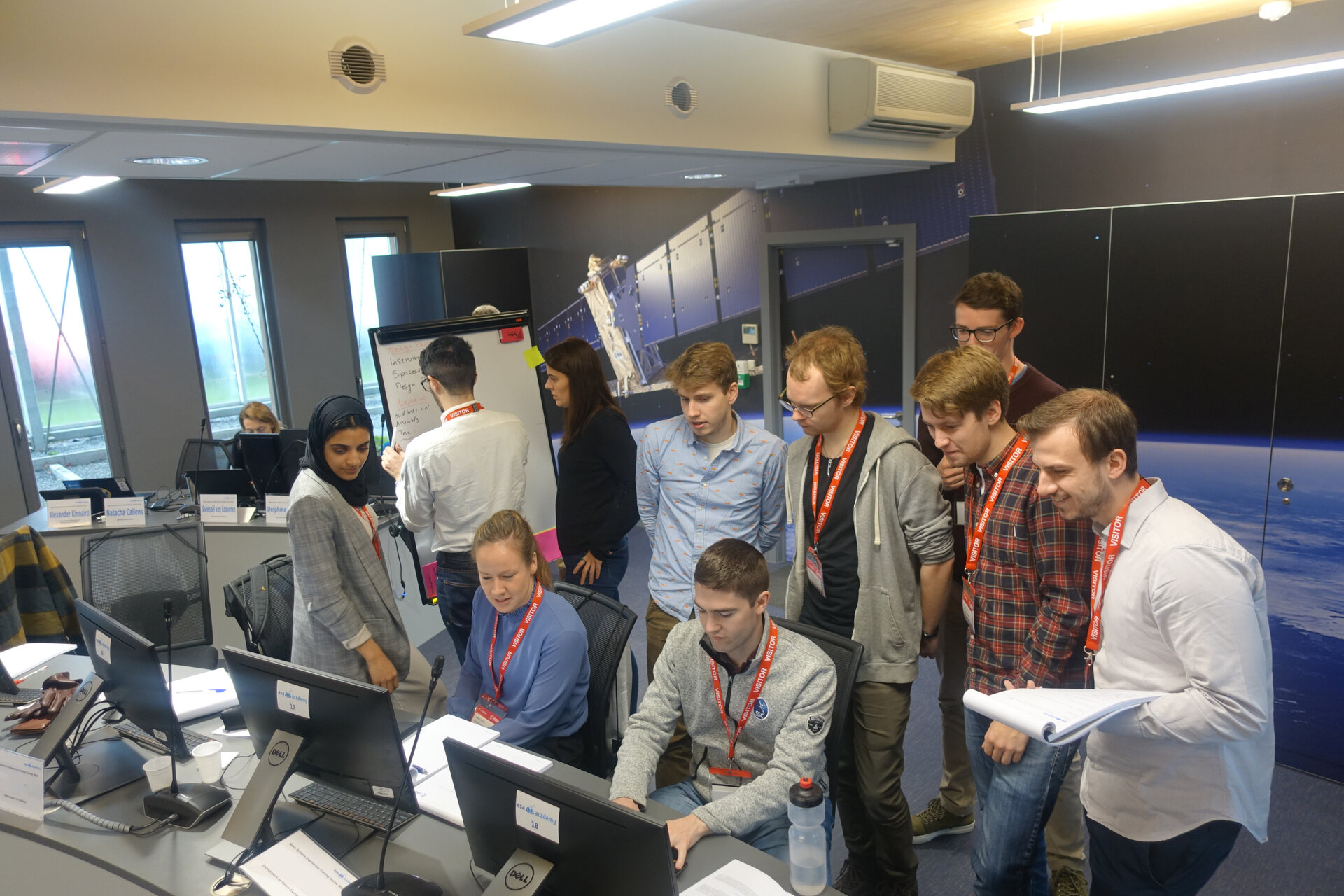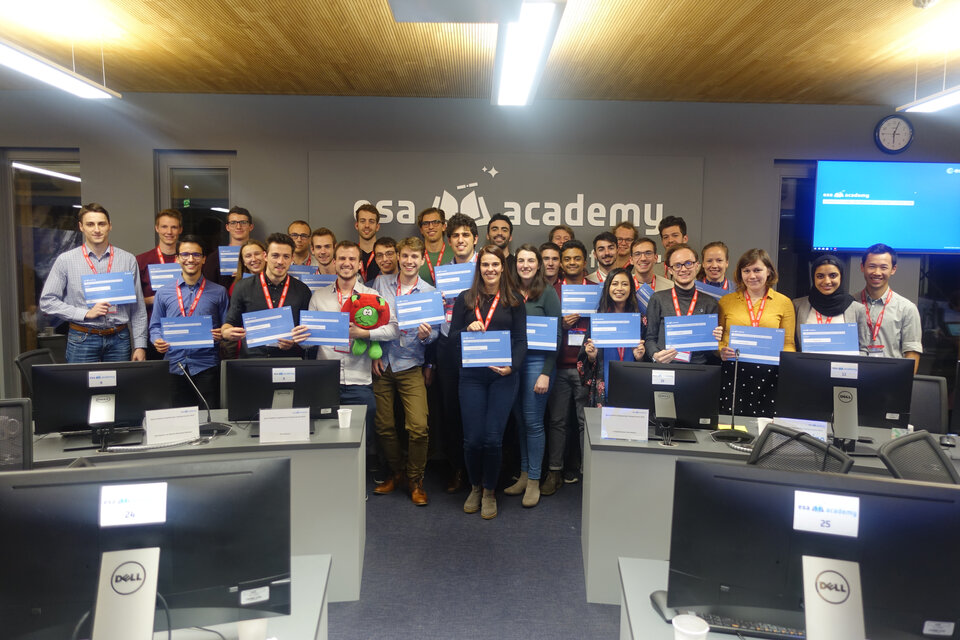Student applications now open for ESA Academy’s Space Systems Engineering Training Course 2020
Space systems engineering is a crucial discipline within the space sector, and a keen understanding of what it is and how it is applied is key in defining the success of any space mission, from a student-built CubeSat to a commercial communications satellite.
Space system engineers follow, and often lead, space projects from conception to delivery, working with other disciplines to define user needs, define requirements and shape the final design before supporting the project through the assembly, integration and testing phase and finally into operation. Space system engineers at ESA and in industry are present at all stages of a space systems life cycle. They perform key functions ensuring what is delivered is what is required and, critically, often handle the interface between many other project disciplines, including project management.
To help prepare the next generation of space systems engineers, the ESA Education Office is looking for 30 highly motivated and enthusiastic university students to participate in the Space Systems Engineering Training Course 2020, to be held from 3 – 6 March 2020 in ESA Academy’s Training and Learning Facility (TLF) at ESA’s ESEC-Galaxia, Belgium.

During the four days, participating students will learn about the background and challenges of space systems engineering, before delving into the roles of a systems engineer within ESA, and exploring the system engineering process in detail. The course will also give students valuable insight into concurrent design and systems approach to verification and validation as well as the interactions with project management, including project planning and risk management. The course will also include a number of group exercises, with the aim of getting participants familiar with system engineering products and some real world problems faced by space system engineers.
The second edition of this training course builds on the successful first edition, which was developed by the ESA Education Office in collaboration with current and retired ESA staff members who are or have worked as systems engineers, or performed system engineering roles on an array of high-profile ESA missions. The latest edition of this course brings new ESA experts and introduces new elements of system engineering, most notably concurrent engineering.
Preliminary schedule:
| Day 1: |
Scope and context of Systems Engineering What is Systems Engineering? How to represent a System The Space Programmatic Environment Tasks of a Systems Engineer |
| Day 2: |
Systems Engineering Process System Requirements How to define the architecture of a system, including trade-offs and specification Design of a space mission including concurrent engineering |
| Day 3: |
Design of a space mission including concurrent engineering (continued) Development and Verification Approach |
| Day 4: |
System Engineering and Project Management Challenges of System Engineering Application of a real space project Launch and operations |

Who can apply?
In order to participate, students must fulfil the following eligibility criteria at the time of application:
- be aged between 18 and 32;
- be a citizen of an ESA Member State, Canada and Slovenia;
- be enrolled as a full-time Bachelor (at least 3rd year), Master, or PhD student in a university (not graduating before the training course);
- have a solid mathematical and physics background;
- be studying for an engineering degree.
Exceptions may be made for students enrolled in a scientific degree with a minimum level of engineering and mathematical knowledge, and a clear interest in space engineering related activities.
The selected students will be sponsored by ESA. This will cover accommodation and meals, as well as up to 200 euros for travelling to Transinne, Belgium.
How to apply:
- Fill in the application form;
- Upload a motivation letter (PDF, maximum 1 page, no images);
- Upload a CV (PDF, in Europassformat, maximum 2 pages);
- Upload a formal recommendation letter (PDF, maximum 1 page, including signature, no images) from a university professor or academic supervisor of current university;
- Upload a copy of academic records (PDF, in English, with the university stamp);
All answers and documents should be in English (except academic records if not available).
The deadlinefor applications is 13 January 2020.
For more information, please contact tlp @ esa.int



